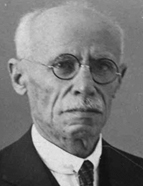

In 1918, it was time for ‘A história do futuro – Inédito de António Vieira’ [The story of the future- Unpublished by António Vieira] , in which he drew attention to the fate of the estate of high literary value that Vieira had left to the Colégio da Baía. In 1920, he presented another work on the Portuguese New Christians, referred to the existing bibliography and reported on the three regiments by which the Inquisition had been governed in Portugal (1552, 1613 , and 1640), distinguishing what was debatable in the light of the law and pointing out the result that had not been achieved. In 1921, he offered the Academia das Ciências [Academy of Sciences] the second volume of his work História de António Vieira . In this regard, it should be noted that António Baião, later in 1926, in a paper on the family of Father António Vieira, declared that no one should undertake work on the celebrated sacred orator ‘without first studying the works on the subject by Mr Lúcio de Azevedo’. That same year, in December, the author presented his paper ‘Vicissitudes da moeda portuguesa. Dos Reais de D. Fernando aos Réis de D. Sebastião’[The upsets of the Portuguese Currency. From the reals of D. Ferdinand to the réis of D.Sebastião].
This was his last historical paper at the Academia das Ciências, but his collaboration went further in terms of cultural relations between Portugal and Brazil. He was present at the most significant sessions on these matters, especially during the celebrations of the centenary of the State of Pará (1915). In the session of 17 June 1915, Lúcio d ’ Azevedo announced that the state of Pará intended to celebrate the third centenary of the founding of its capital and the beginning of Portuguese colonisation in the region in December and that it had organised various forms of commemoration for this purpose. He himself was the bearer of the relevant documentation, which he delivered to the Portuguese A cademy. Contacts with Brazilian historians continued. According to Maria Antonieta Soares de Azevedo, José Veríssimo ’ s friendship led to his friendship with Capistrano de Abreu . T he correspondence between the two historians provides special information about their work plans , and it is one of the most praiseworthy accolades for Lúcio de Azevedo. He also attended the session of 26 April 1923, together with Oliveira Lima and the Spaniard Planas Suárez, taking the floor to greet the Brazilian historian and remember his predecessors at the Academy, José Bonifácio, Varnhagen and Olavo Bilac, and referred to Oliveira Lima ’ s book D. João VI no Brasil [D. João VI in Brazil] , in whose dedication the author paid tribute to his predecessors and to the professors of the Higher Course of Arts and Humanities he had attended in Lisbon. Fidelino de Figueiredo, Jaime Cortesão, António Ferrão, and Alberto de Oliveira then took the floor.
This work is financed by national funds through FCT - Foundation for Science and Technology, I.P, in the scope of the projects UIDB/04311/2020 and UIDP/04311/2020.
